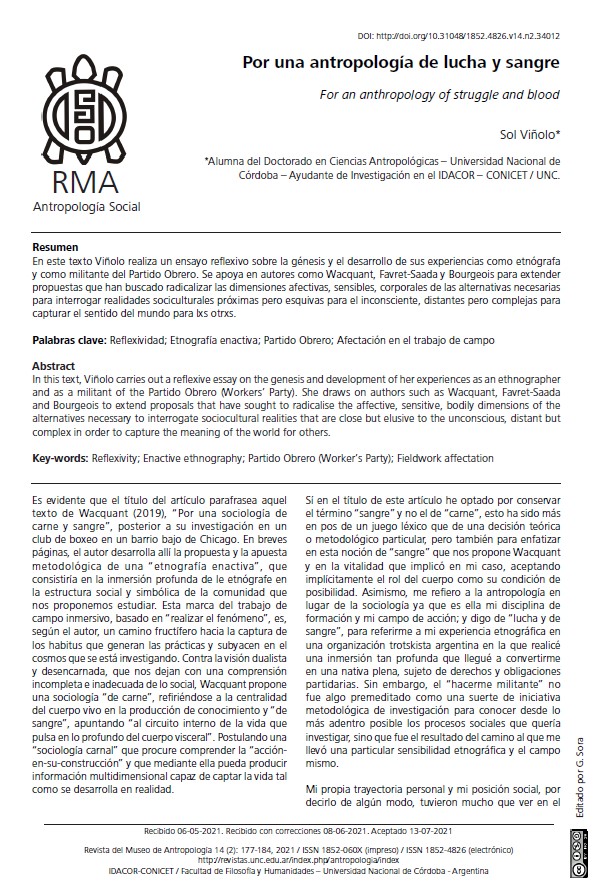For an anthropology of struggle and blood
DOI:
https://doi.org/10.31048/1852.4826.v14.n2.34012Keywords:
Reflexivity, Enactive ethnography, Partido Obrero (Worker’s Party), Fieldwork affectationAbstract
In this text, Viñolo carries out a reflexive essay on the genesis and development of her experiences as an ethnographer and as a militant of the Partido Obrero (Workers' Party). She draws on authors such as Wacquant, Favret-Saada and Bourgeois to extend proposals that have sought to radicalise the affective, sensitive, bodily dimensions of the alternatives necessary to interrogate sociocultural realities that are close but elusive to the unconscious, distant but complex in order to capture the meaning of the world for others.
Downloads
References
Favret-Saada, Jeanne. (2013). Ser afectado como método de conocimiento en el trabajo de campo antropológico. Avá. Revista de Antropología 23: 49-67.
Wacquant, Loic. (2019). Por una sociología de carne y sangre. Revista del Museo de Antropología 12 (1): 117-124. DOI: https://doi.org/10.31048/1852.4826.v12.n1.24166

Downloads
Published
Issue
Section
License
Copyright (c) 2021 Sol Anahí Viñolo

This work is licensed under a Creative Commons Attribution-NonCommercial-ShareAlike 4.0 International License.
Those authors who have publications with this Journalaccept the following terms:
a. Authors will retain their copyrights and guarantee the journal the right of first publication of their work, which will be simultaneously subject to the Creative Commons Attribution License (Licencia de reconocimiento de Creative Commons) that allows third parties to share the work as long as its author and his first publication in this journal.
b. Authors may adopt other non-exclusive licensing agreements for the distribution of the version of the published work (eg, deposit it in an institutional electronic file or publish it in a monographic volume) provided that the initial publication in this journal is indicated.
c. Authors are allowed and recommended to disseminate their work on the Internet (eg in institutional telematic archives or on their website) before and during the submission process, which can lead to interesting exchanges and increase citations of the published work. (See The Effect of Open Access - El efecto del acceso abierto)











